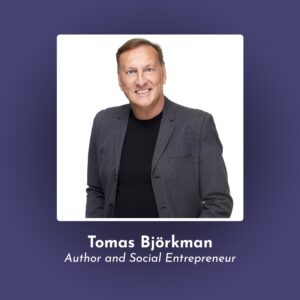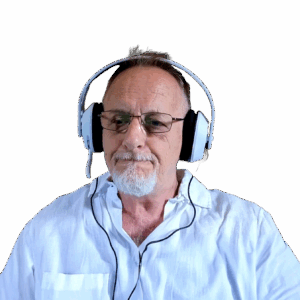
Ep 48 | Tomas Björkman
Tomas Björkman: “The Great Transformation – Metamodernism and The Future”
On this episode, author and social entrepreneur Tomas Björkman joins Nate to discuss his recent projects promoting inner development based on his book The World We Create, as well as Lene Rachel Andersen’s book The Nordic Secret. Tomas unpacks the philosophical framework of ‘metamodernism’ and ultimately why having more mindful, engaged, global citizens is so critical to our coming challenges. How can we as individuals contribute to a more positive transition by becoming more thoughtful and resilient?
About Tomas Björkman
After many years in business as an entrepreneur and investment banker, Tomas Björkman is now a social entrepreneur and the founder of Ekskäret Foundation in Stockholm. He is also the co-founder of the research institute Perspectiva in London, the Co-creation Loft, the media platform Emerge in Berlin, the 29k personal development platform, and the Inner Development Goals (IDGs) framework. He is a member of the Club of Rome and a fellow of the Royal Swedish Academy of Engineering Science. He is the author of three books: The Market Myth (2016), The Nordic Secret (together with Lene Rachel Andersen, 2017) and The World We Create (2019). He divides his time between London, Stockholm and Berlin.
In French, we have a motto that says that a simple drawing is often better than a long explanation. Jean-Marc Jancovici Carbone 4 President
That’s very understandable because with left atmosphere thinking, one of the problems is that you see everything as a series of problems that must have solutions. Iain McGilchrist Neuroscientist and Philosopher
We can’t have hundreds and hundreds of real relationships that are healthy because that requires time and effort and full attention and awareness of being in real relationship and conversation with the other human. Nate Hagens Director of ISEOF
This is the crux of the whole problem. Individual parts of nature are more valuable than the biocomplexity of nature. Thomas Crowther Founder Restor
Show Notes & Links to Learn More
Download transcript00:40 -Tomas Bjorkman works + info
04:31 – Royal Swedish Academy of Engineering Sciences, Club of Rome
04:30 – Perspectiva
06:26 – Youth camps, adult retreats, conferences
06:49 – Emerge Project
15:26 – Inner development goals
17:15 – Empathy and compassion cannot be taught in a normal school setting
19:20 – Enlightenment Perspective
25:15 – Metamodernism, Postmodernism
35:21 – Humans are prone to in-group/out-group behavior
36:55 – Dunbar’s number
49:20 – Emergence
50:50 – The Market Myth
52:54 – 85% of global exchange in today’s market are immaterial property right
54:40 – Mickey Mouse patent extensions
1:00:45 – The Nordic Secret
1:00:55 – Lene Rachel Andersen
1:03:10 – Humans tend to be dependent on external authority in times of great change
1:04:20 – Nordic educational/retreat centers for personal development in young adults
1:06:03 – Bildung philosophers
1:09:02 – Rosa Parks – Nordic style school she attended (Highlander Folk School in Tennessee)
1:10:30 – Obama speech to heads of states of Scandinavian countries
1:11:56 – Norrsken Foundation, Niklas Adalberth
1:12:13 – Ekskaret Foundation
1:13:04 – 29K
1:13:45 – The World We Create
1:20:43 – Stockholm School of Economics






